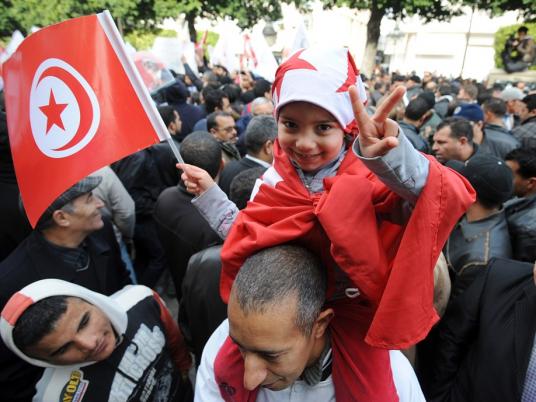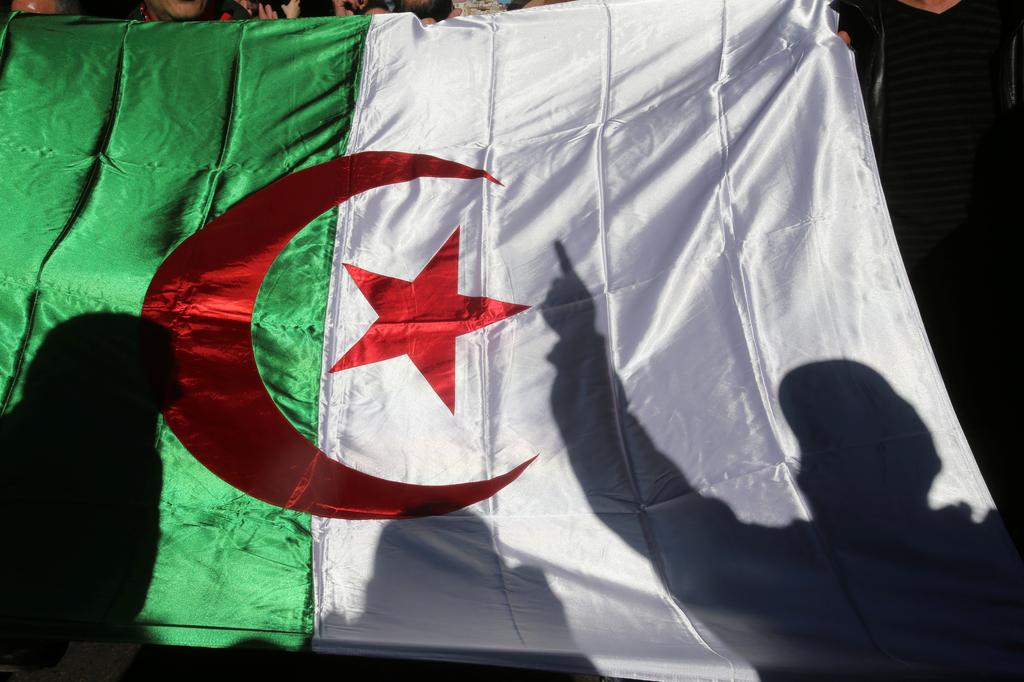
More than one year after Tunisia’s uprising against the rule of President Zine al-Abidine Ben Ali and almost six months since the country’s first democratic elections, the specter of the old regime still haunts Tunisia’s political scene. Corruption, endemic to the political system prior to the revolution, continues, while justice for ex-regime figures has proven to be a slow process lacking in transparency.
“A regime does not die a sudden death. They always have that unfortunate habit of perpetuating themselves,” says Samir Dilou, Tunisia’s Minister for Human Rights and Transitional Justice and a member of the governing Islamist party, Ennahdha. “It’s not a question of individual agency, rather that of a well-entrenched system.”
This problem is most glaring when it comes to how Tunisia is dealing with justice for the “martyrs” of the revolution, who were killed by members of the National Guard and the police force in the early weeks of the uprising. Those who were wounded in the uprising and the families of those who were killed have staged multiple protests in front of Dilou’s offices, calling for justice and more medical aid from the government. According to Dilou, over 20 ex-regime figures are currently in jail, although he declines to provide names or details on how the government is handling their cases.
Others have criticized the current government for not being transparent enough in dealing with the abuses of the former regime.
“We want more transparency, disclosure of information, and the most important thing we are looking for is achieving the objectives of the revolution… which is accountability of those who killed the martyrs,” says Mouheb Garoui, 24, president of I Watch, a non-governmental transparency and corruption organization formed in the wake of the revolution.
“We just want to talk about accountability, transparency and corruption related to the revolution,” Garoui says.
Dilou says that while the justice system needs to be reformed, the cases of ex-regime figures are under the portfolio of the, as yet, unreformed Justice Ministry. He says that there is a misunderstanding among Tunisians that his ministry, the Ministry of Transitional Justice, is responsible for these cases.
“Some protesters have actually asked me to judge snipers [who fired on revolutionary protesters] but it is not within my scope of responsibility. The actual problem arises from the confusion that people have between transitional justice and justice in the transitional period,” Dilou says, insisting his role is limited to coordinating strategy on how a future Tunisian justice system should function.
However, other government officials believe their primary function in the new government is to immediately address and rectify the problems left behind by the former regime.
“Our main difficulty lies with those people who profited in the old system. They will try to defend themselves. It’s a continuation of the old system,” says Samir Annabi, the new head of the National Commission against Corruption and Misappropriation of Funds. “Fortunately I haven’t seen new networks of corruption.”
Annabi, who was formerly the president of the Institut Superieur des Avocats, the professional body charged with the training and accreditation of lawyers in Tunisia, was appointed to the commission this March, four months after his predecessor died. Those four months, according to Abderrahman Ladgham, a deputy minister within the Prime Ministry in charge of governance and the fight against corruption, amount to wasted time.
“We would like to give a strong signal, to make a break with the ex-regime,” says Ladgham.
However, it is unclear how much power the corruption commission will have to carry out its duties. According to Ladgham, people are worried about giving the body too much power. Ladgham declines to single out which specific parties within Tunisia are opposed to giving the commission a broader mandate; however, he notes that their main concern is that, given too much power, the commission will have the power to investigate cases selectively and according to the interests of those working in the commission.
As for looking at abuses within the ministries themselves, in particular the Interior Ministry, which was used as a blunt autocratic weapon during Ben Ali’s time, Ladgham is unsure how the commission will be able to carry out its mission.
“Theoretically [the commission] can look at the ministries, but we don’t know how it will work in practice,” he says.
The commission’s task is further complicated by the fact that it will be investigating 6,000 files submitted by private citizens under the previous, transitional government. The files, authored by those working in both the private and public sectors, document a varied assortment of alleged corrupt practices.
“Behind each file is at least one person seeking justice,” says Annabi. “We will investigate these cases and refer them to the courts.”
Effectively documenting corruption, and even defining the term after decades where the ruling system was in essence one of institutionalized and legitimized corruption, is a daunting task. Ladgham makes the distinction between “petty corruption,” which is apparent to Tunisian citizens, and “grand corruption,” a problem that he says prompts concern at the international level and is the main target for Tunisia’s new government.
“While we give priority to big corruption, what we need to do with petty corruption is try to install in people’s minds a culture of anti-corruption. We need legislation that meets with international standards,” says Ladgham.
According to Transparency International, Tunisia fell 14 places among the list of countries in its annual Corruption Perceptions Index between 2010 and 2011.
“Asking for the end of a corrupt regime and succeeding in changing the ruler doesn't necessarily mean that the rule, [or] the structure, is changed,” says Sion Assidon, the head of Transparency’s office in Morocco who monitors Tunisia. “It is a long process and it began in Tunisia, for example, where there are now serious attempts — at the demand of the NGOs and at least on the agenda of the new rulers — to build means of prevention.”
Assidon believes that Tunisia’s drop in the rankings may be due to a higher awareness of corruption after the discovery of a number of scandals following the fall of Ben Ali.
Ladgham says that it is difficult to measure corruption by perception, but believes that “some people” profited from instability and insecurity during the transitional period.
“During the old regime, there was a minority of people who profited from the state organs of control… the reason we have an impression that corruption has increased is because there has been a redistribution of the cards,” Ladgham says.
However, Ladgham is confident that Tunisia will improve in next year’s rankings, and notes that the reactivated National Corruption Commission will soon be producing its own reports on the state of Tunisia’s corruption.
Ladgham’s portfolio also includes recovering the foreign assets of ex-regime figures. He notes that many other nations are not cooperating actively with Tunisia on this issue, “using as pretexts their internal legislations.”
“This is a fight between two groups: The Tunisian State and an international mafia,” he says.
Ladgham does not single out countries that are being unhelpful in the search for ex-regime assets, but he notes that Spain and Lebanon have been particularly helpful and cooperative with the new Tunisian government. It is widely believed that vast assets remain in Canada, Switzerland and some Arab Gulf states, among others.
And while Tunisia struggles to throw off the yoke of a regime that is stalling the justice process and poisoning Tunisia’s new democracy with a legacy of corruption, there are glimmers of hope that the country can face up to its systemic shortcomings.
“The old regime had a face, a façade that it presented to the West, as a developed country, the good little boy of the World Bank, the good little boy of the IMF, a country open to tourism, to culture, and a second face which was repressive, intolerant, opaque, corrupted. We would like to show something else: transparency even if the dossiers or the reports are made against us. We have nothing to be ashamed of there, because we are beginning to learn and we have the will to do something about it,” says Ladgham.



